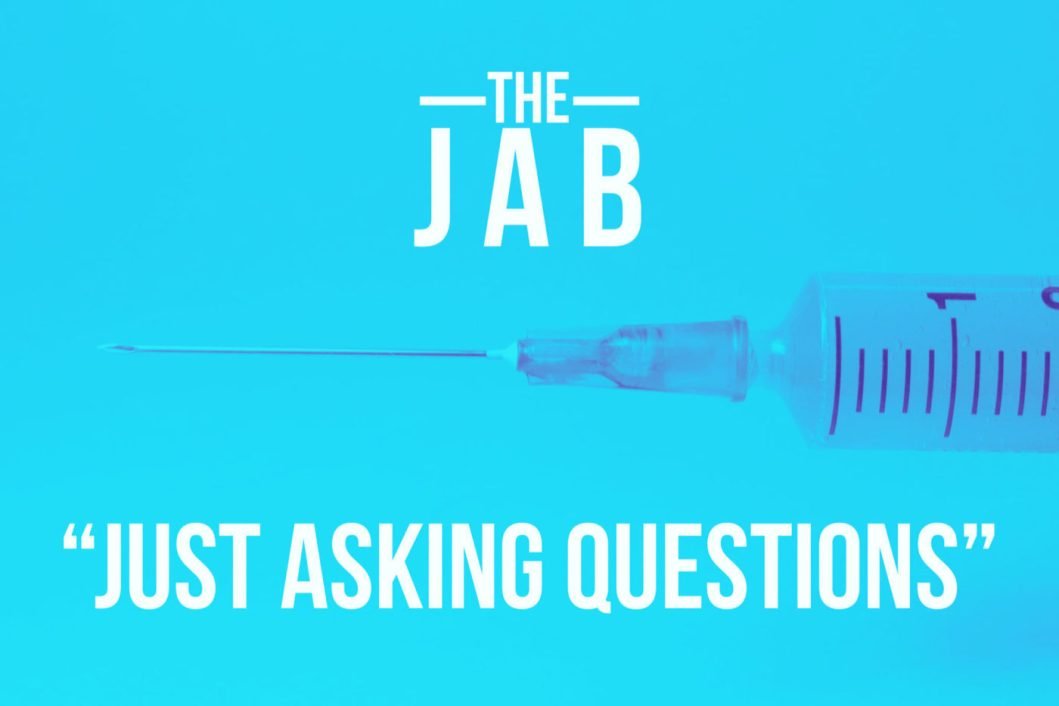Just Asking Questions
It’s true that we live in an uncertain world, but those fond of “just asking questions” will bring the following topics up as reasons to be vaccine-hesitant; pointing out, correctly, that we just don’t have all the answers.
Will they remain effective against newer variants?
How long will the immunity they provide last?
Will there be any scary long-term side effects?
Can we be sure those already vaccinated might not still be asymptomatic carriers?
Perfect knowledge is impossible, but it also is not something anyone actually claims to have. It is true that we do not and cannot have complete answers to those questions. But we can make predictions about what we don’t know based on what we do know and in turn adapt based on how those turn out. Science progresses by the method of forming a hypothesis, testing it via experiment, evaluating the data that ensues, and inviting other qualified people to examine and critique the process.
None of this takes place in a vacuum. Established knowledge, like the laws of physics, chemistry, and biology, and existing theories like those of cells, gravity, and evolution, constrain and inform how new hypotheses are created. It’s a network of knowledge that makes predictions about what is unknown in the context of what is known. That doesn’t mean there is no room for innovation or for knowledge that breaks new ground, but it does mean that more foundational chains of knowledge supported by consistently confirmed predictions are less likely to be overturned.
Thank you for indulging my perhaps abstract-sounding philosophical musings. Here’s why it matters: When it comes to the Covid vaccines, there are undeniably things we don’t yet know. We don’t know the long-term effects of mRNA vaccines because they are new. But that statement is incomplete without also saying that they have been in development since the early 90s and have previously been tested in humans for rabies, influenza, cytomegalovirus, and Zika.
This scary-sounding unknown should also be contextualized by recognizing that a) there is no reason or precedent to think they would result in any negative long-term effects and b) so far phase III trials done on 10s of thousands of people have shown excellent safety, and the many millions of doses delivered have demonstrated the same at scale. An important feature of these kinds of vaccines is that mRNA is deconstructed by the body fairly quickly after it has delivered its message, leaving no trace—and no, it doesn’t change or even interact with the DNA in your cell’s nuclei.
Do you notice that providing this kind of context helps de-escalate the alarmism of how the question is initially positioned?
With regard to asymptomatic spread via people who have been vaccinated, we don’t know for sure because a) that was not the focus of initial research developing and testing the vaccines, and b) it is very hard to test, but early data shows that people who have been vaccinated are much less likely to infect others. More research is necessary, but these findings are consistent with existing knowledge that says that if the vaccine reduces the amount of virus present in someone’s system, there would be less viral shedding and therefore lower risk of being infectious.
How long will a vaccination provide immunity? Again, with a novel virus and new vaccines, we just don’t know. Early data shows between 3 and 9 months—but that short-sounding period has more to do with not having had enough time yet to see if it lasts longer. If we contextualized this with the earlier SARS-Cov-1 we know that antibodies provided protection for a two-year period. More data is required.
Now, with regard to the variants, so far the existing vaccines are still effective at preventing severe illness, hospitalization, and death, but may be less effective at preventing mild and moderate symptoms. In news this week, the Pfizer vaccine has joined Johnson & Johnson in being shown as effective against the variants out of Brazil, England, and South Africa. Vaccine research and development will continue, and yes, we may need a booster shot or even a yearly vaccine.
There’s a lot we don’t know. But here’s what we do know: the more people are vaccinated, the more we reduce infections, severe illness, and death, the more we contain the virus, and the more we slow down the evolutionary process that results in new adaptive strains circulating. The only context within which this all means anything other than “get vaccinated as soon as you can” is one in which suspicion of vaccines as themselves potentially dangerous colors the questions per a kind of risk/benefit algorithm. So let me reiterate; the risks for both individuals and your family and community of not getting vaccinated are exponentially higher than any rare and transient strong side effects may be.
Today’s takeaway: Yes, ask questions. Ask all of the questions, but try to do so responsibly, with well-informed context!
